Drug and alcohol abuse carries with it significant risk for businesses in Texas. Abuse costs millions of dollars each year in lost productivity, property damage, and injuries or deaths on the job. To eliminate the risks, many employers in Houston turn to WSS to test their employees for drugs and alcohol. Testing can raise privacy concerns with some workers and employers, however. It’s important to balance the need for safety with the employee's Constitutional protection from illegal searches. How can your business ensure that you’re on the right side of the law?
Generally speaking, U.S. courts have ruled that businesses may test when there is a compelling reason to do so. What’s a compelling reason? It must meet two criteria to be considered compelling in a legal sense. First, is the employee engaged in safety-sensitive or potentially dangerous activities? Second, is there a defensible reason to suspect drug abuse?
Legally, there are 5 reasons to conduct a drug test:
- Reasonable suspicion: An employee has given objective indications that he is under the influence of drugs (slurred speech, inability to maintain professional composure, etc.)
- Post-accident: A worker is involved in injuring himself or another person or in damaging property.
- Return to duty/Follow-up: An employee returns to work after beginning a drug-abuse recovery program that requires drug testing.
- Pre-employment: Job candidates are tested as part of the hiring process.
- Random: Employees are subject to being selected in an unpredictable way to be tested.
The reasons to suspect drug use is relatively cut-and-dried for the first three reasons for testing listed above. The courts have ruled that pre-employment testing of all employees is acceptable, regardless of how dangerous their work is. The fifth reason, random testing, requires more insight. To reduce risk of lawsuit, businesses should divide employees into categories based on the degree of hazard related to their jobs. Employees performing hazardous jobs, such as driving a vehicle, working with tools, chemicals, or in a hazardous environment, may be subject to random testing. An employer is likely to find it difficult to defend a random testing program that includes employees whose job only requires them to sit at a desk or walk around an office. While drug abusers in those jobs are less productive, absent more often, make more mistakes, and could cost your company customers through poor service, these are not necessarily reasons to test these employees for drugs and alcohol. If these employees are to be terminated, it must be based on performance, not safety risks posed by substance abuse.
If you’re concerned about privacy complaints related to your organization’s drug- and alcohol-free workplace program, WSS can help. We assist businesses across Texas and the United States conduct drug and alcohol screens with professionalism, discretion, and respect. Call us today for a free consultation on how to properly implement drug-testing policies for your business.
For more important tips on drug and alcohol testing, follow us on Facebook!

.png?width=500&height=500&name=Blue%20and%20White%20Classic%20Shield%20Financial%20with%20Star%20Logo%20Design%20(1).png)


